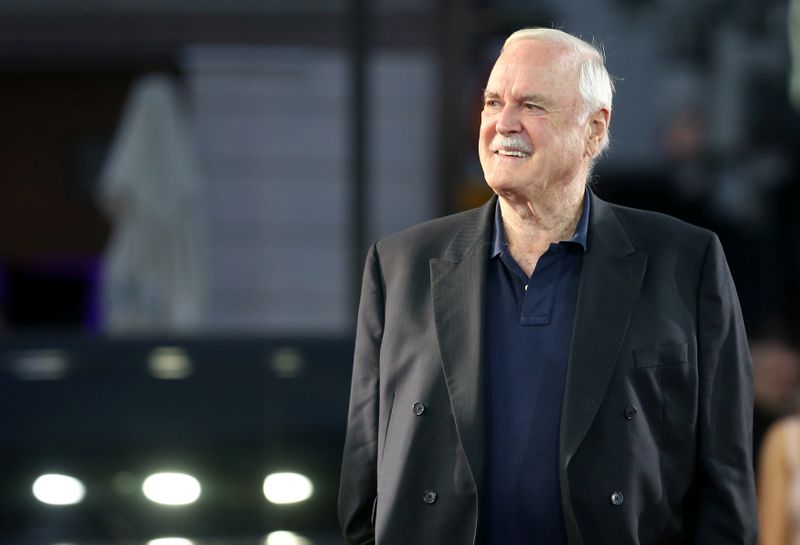(Reuters) – John Cleese does not have much time for political correctness or cancel culture, and as for the state of the world? It’s completely hopeless, the former “Monty Python” star says.
Instead Cleese, 80, is promising “a short selection of Peruvian burial ditties,” when he presents a comedic live-stream plus Q&A session from London next month.
“Why There is No Hope” is described as part lecture and part comedy standup livestream. Cleese describes it as an experiment in front of the small audience required by social distancing in the coronavirus era.
The British actor is perhaps best known as rude hotel owner Basil Fawlty in the 1970s British TV series “Fawlty Towers,” and the man from the Ministry of Silly Walks in the absurdist sketch series “Monty Python’s Flying Circus.”
Cleese last month called the BBC “cowardly and gutless” for temporarily taking down an episode of “Fawlty Towers” that made fun of Germans and World War Two and also featured a character using a racial slur.
Cancel culture “misunderstands the main purposes of life which is to have fun,” Cleese told Reuters, referring to the trend in which people are ostracized because of behavior or remarks seen as objectionable.
“Everything humorous is critical. If you have someone who is perfectly kind and intelligent and flexible and who always behaves appropriately, they’re not funny. Funniness is about people who don’t do that, like Trump,” he said, referring to the U.S. president.
The problem with political correctness, he added, is that comedians “have to set the bar according to what we are told by the most touchy, most emotionally unstable and fragile and least stoic people in the country.”
As for the Aug. 2 livestream to be held at London’s Cadogan Hall, Cleese says he expects to perform for about 50 people seated at social distance.
Cleese says he is not bothered at playing in front of such a small crowd. “I played to an audience once in New Zealand where I did not get a laugh,” he said.
(Reporting by Rollo Ross. Writing by Jill Serjeant; Editing by Alistair Bell)


























